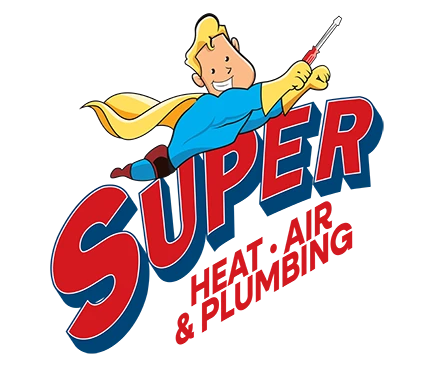Minor Parts, Major Problems
Electrical problems account for the majority of air conditioning system problems, especially what we call “No Cools” or “No Heats”. And there’s a ridiculous amount of electrical components that make an air conditioning system function properly, including circuits and connections. So when even the smallest electrical component fails, it can result in an inefficient or nonfunctioning AC system.
Two components that work together to power up your AC system that you should know about are the capacitor and contactor. They’re an electrical tag team that can fail easily and need to be replaced regularly. And they’re also relatively easy and cheap to fix. But it can also be dangerous to attempt to fix them yourself.
So with that in mind, let’s take a look at what these two components do, how they can fail and why you should hire a professional to replace them:
The Capacitor and Contactor are a Team
The capacitor and contactor work together in your air conditioner or heat pump to help power the fan and compressor. A telltale sign that one or both of these components has failed is when your air conditioning system’s fan runs normally, but the air is not heating or cooling. The most likely cause is either a failed capacitor or contactor. Other signs of damage include leaks from the capacitor and loud buzzing noises from the contactor.
As we mentioned, these parts are relatively cheap and easy to replace. However, their failure can lead to expensive compressor or fan motor repairs. So if you suspect a problem, it’s best to get them replaced immediately.
The Capacitor
Capacitors make it possible for the motors that power the compressor and fans to work. They’re like temporary cylindrical batteries that need to be replaced regularly. There are two types of capacitors: start capacitors and run capacitors. Start capacitors send a jolt of electricity to start up the motor. Run capacitors, on the other hand, send a regular series of jolts to keep the motor working. Capacitors help power the compressor, the blower motor and the outside fan. And like batteries, they will fail over time due to excessive use.
One sign that a capacitor is failing is a clicking sound from within the cabinet. And when one or both types of capacitors die, the motor they’re attached to will still attempt to fire up, but will only hum. So if the motor continues to try to fire up with a failed capacitor, it could cause it to burn out. A weak capacitor attached to the compressor could cause what is known as ”hard starting”. This is when the AC struggles to turn on and then shuts off again soon after. Hard starting puts an enormous strain on the compressor. And when a compressor starts to fail, the HVAC system will need professional attention immediately.
Don’t Try This at Home
While you may read or watch “Do It Yourself” videos online that show you how to easily replace the capacitor, we don’t recommend you attempt it unless you have the right experience and tools. Of course we want you to call us at (813) 355-0288 so that we can do it for you. But it’s not just because we want your money. It’s also because replacing a capacitor can be a very dangerous operation if you don’t know what you’re doing and you’re not equipped to handle it.
Exposure to the oil that leaks from damaged capacitors is very dangerous. And capacitors are also objects that store energy. So mishandling a capacitor or any electrical component can cause serious injury or death from its voltage. A capacitor stores power in a roll of electrically charged sheets of material. In other words, the capacitor has enough voltage to power the compressor and fan motors. That also means it has enough voltage to shock the hell out of you!
The Contactor

The contactor on your AC unit is like a switch located in the AC system’s outdoor condenser unit. It provides power to components such as the compressor and condenser fan and turns the AC unit on and off.
Contactors can fail electrically or mechanically. A sign of failure on a contactor is that the condenser unit will not shut off even if the thermostat is set to power off. And mechanical failure can happen if something has gotten into it such as pests or debris that prevent it from working. As for electrical failure, the coil of a contactor can become damaged when the insulation between the wires breaks down.
Again, Don’t Try This at Home
Both a capacitor and are contactor are bound to fail eventually. As we mentioned, these are temporary parts that need to be changed. And if you don’t want to pay a lot of money to get them replaced, we recommend buying spares online. These parts can be found relatively cheap. And that way when they fail, you’ll only be paying for the repair and not what an AC technician will charge you to acquire the parts.
Air conditioning technicians use what’s called a voltage multimeter to test for a bad capacitor and contactor. But sometimes all it takes to recognize a problem is a visual inspection. Obvious signs of failure include a gooey, leaky or bulging capacitor or a burned contactor. So again, while replacing a capacitor and contactor is an easy enough fix, we still recommend hiring a professional (us) to handle it.
Basically it’s a high voltage hazard and if you don’t know what you’re doing, don’t do it!
Something as simple as not checking if the power is turned off can produce a serious, sometimes fatal electrical shock if you’re not careful. So redundant as it may sound, if you have a damaged capacitor and contactor, don’t try to replace either yourself. It’s not worth the risk! We also recommend regular preventive maintenance to avoid having a capacitor or contactor fail on you at the worst possible time.
Our technicians are highly experienced and trained to handle the job. So call us and we’ll fix it for you. Oh, and Happy Holidays too! [hls_phone_number]



